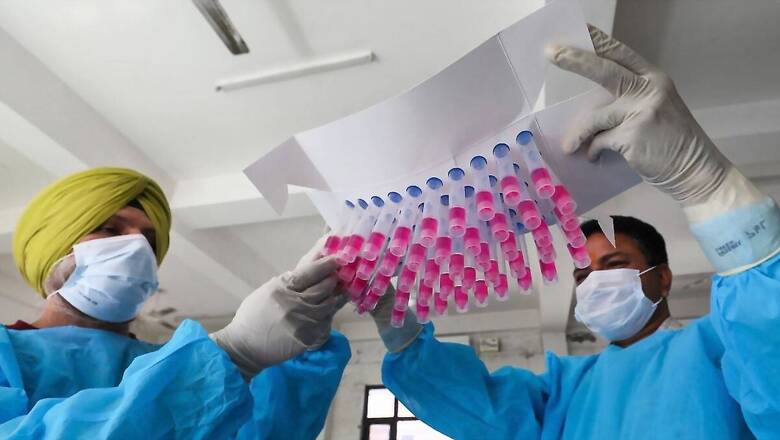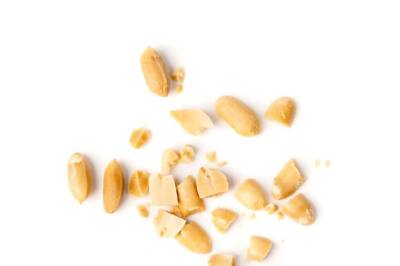
views
A new coronavirus variant, BA.2.86 that has been nicknamed Pirola, is making people sick in several countries including US, UK and China. The new risk is perhaps a reminder that there is a high chance of reinfections. Many are yet to fully recover or have new health problems, with 63 percent Indians saying they displayed symptomatic Covid while 22 percent have had it multiple times and, in 20 percent cases, the subsequent infection was more severe or persisting.
A survey, conducted by community social media platform LocalCircles, showed that among those who confirmed having a Covid infection, 93 percent had it in 2022 while 46 percent have already had it in 2023. The findings indicated that cases are being underreported as people are avoiding RT-PCR testing despite symptoms. For 25 percent people, Covid was more severe in a subsequent infection or reinfection indicating the need to observe Covid-appropriate behaviour like masking and social distancing.
The arrival of Omicron in December 2021 showed that a certain level of protection via vaccination or even natural immunity following a recent infection was not always the case. Health experts are concerned about the long-term impact of Covid on different organs and a new set of health conditions — blood pressure, diabetes, sleep apnea, liver cirrhosis — being reported. Emerging evidence suggests that Covid can also trigger autoimmune disorder, which can lead to vascular deterioration.
Indians have practically given up on Covid-appropriate behaviour in the absence of norms like masking and social distancing in public places. Even schools, which were the most compliant till mid-2022, are not following these norms due to which many students are contracting not only Covid but other viral infections far too frequently.
The question, however, remains as raised by some immunologists: what if every Covid reinfection is wiping our T-cells and lowering our immunity to fight the disease and other viral illnesses?
According to the findings of the survey, 63 percent confirmed having contracted Covid once or more while 22 percent said they had been impacted by multiple infections. The survey sought to know the magnitude of Covid reinfections and asked its respondents the number of times they had been infected in the last 40 months. At an aggregate level, 63 percent of those surveyed indicated being infected with the virus once or more in the last four years.
Of the people surveyed who had Covid infection multiple times, a quarter had it in 2022 and again in 2023. While Covid began in 2020 with the Alpha variant followed by Beta and the severe Delta in 2021, a majority of the Indian population did not get infected till Omicron arrived in late 2021 and into 2022.
Hence, the survey sought to understand the year in which people got infected and reinfected with Covid, asking people about multiple infections and the years in which they contracted them. In all, of those surveyed who had Covid multiple times, a quarter of them had it in 2022 and again in 2023.
Out of those who have had Covid to date, 46 percent claim to have been infected in 2023. Analysing the data of those who got Covid multiple times, 93 percent had it in 2022 or the third wave; 48 percent had it in 2021; in 2020, when it was first detected in India, 27 percent respondents got the infection; and in the current year, 46 percent claim to have already been infected.
It must be noted that a large majority of people are not getting RT-PCR tests to validate Covid and, hence, these numbers are not reflected in any state or central government Covid-positive data. For several months now, government data has been showing that India is reporting fewer than 100 cases per day.
At least 20 percent of those who had Covid multiple times had a severe, persisting or long Covid during the reinfection. The survey sought to know the severity of the infection from people who have got it multiple times. A severe infection is defined as one that causes severe symptoms or persisting long Covid conditions. Of those surveyed, who had had multiple infections, 20 percent had a severe, persisting or long Covid after experiencing mild infection the first time and, for 5 percent, the severity was similar in the following infections.
The findings indicate that for one in four having a reinfection meant similar or higher severity and not reduced. This finding is despite many calling Omicron a milder version as compared to Alpha, Beta and Delta variants.
Overall, the findings indicated that 63 percent of those surveyed had one or more Covid infections since 2020 and
22 percent have been impacted with multiple infections. It was also learnt that 2022 was when the highest number of Indians contracted Covid followed by when Beta and Delta variants were active till mid-2021 and then Omicron, which arrived in December 2021. Out of those who have had Covid, 46 percent said they have already contracted it in the first eight months of the year indicating that while government data does not reflect the spread due to ‘near-zero’ RT-PCR testing, people are still getting infected.
The survey also learned that reinfection is not necessarily milder or has lower risk, as 20 percent respondents explicitly indicated that their second or subsequent infection was more severe than the first while 5 percent said it was as severe as the first.
As new Covid variants like BA.2.86 with over 35 mutations surface, it would be wise to follow social distancing norms and prevent a likely reinfection. But, this is going to be a lot harder to achieve with no government mandates on Covid compliance, as well as no real case data.



















Comments
0 comment